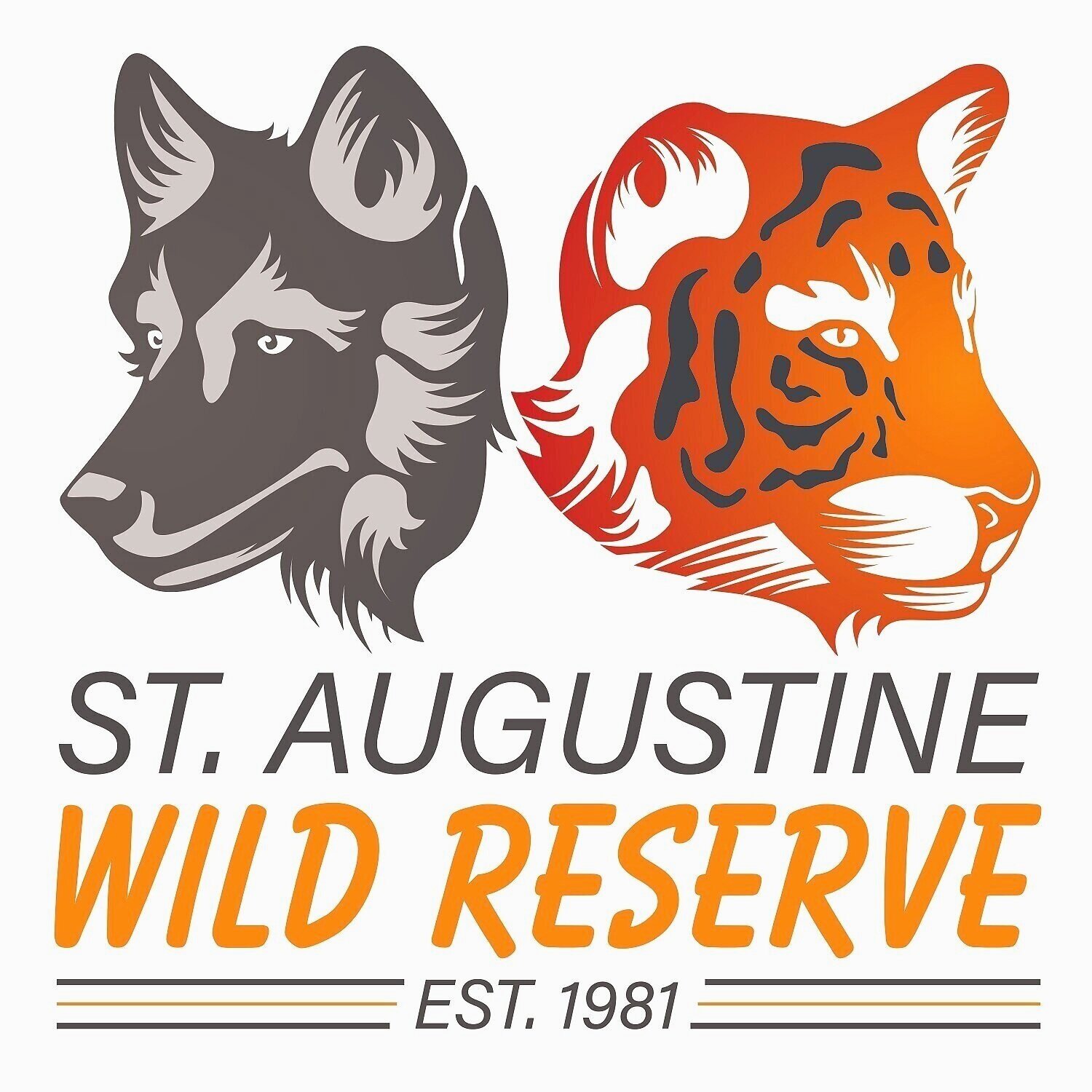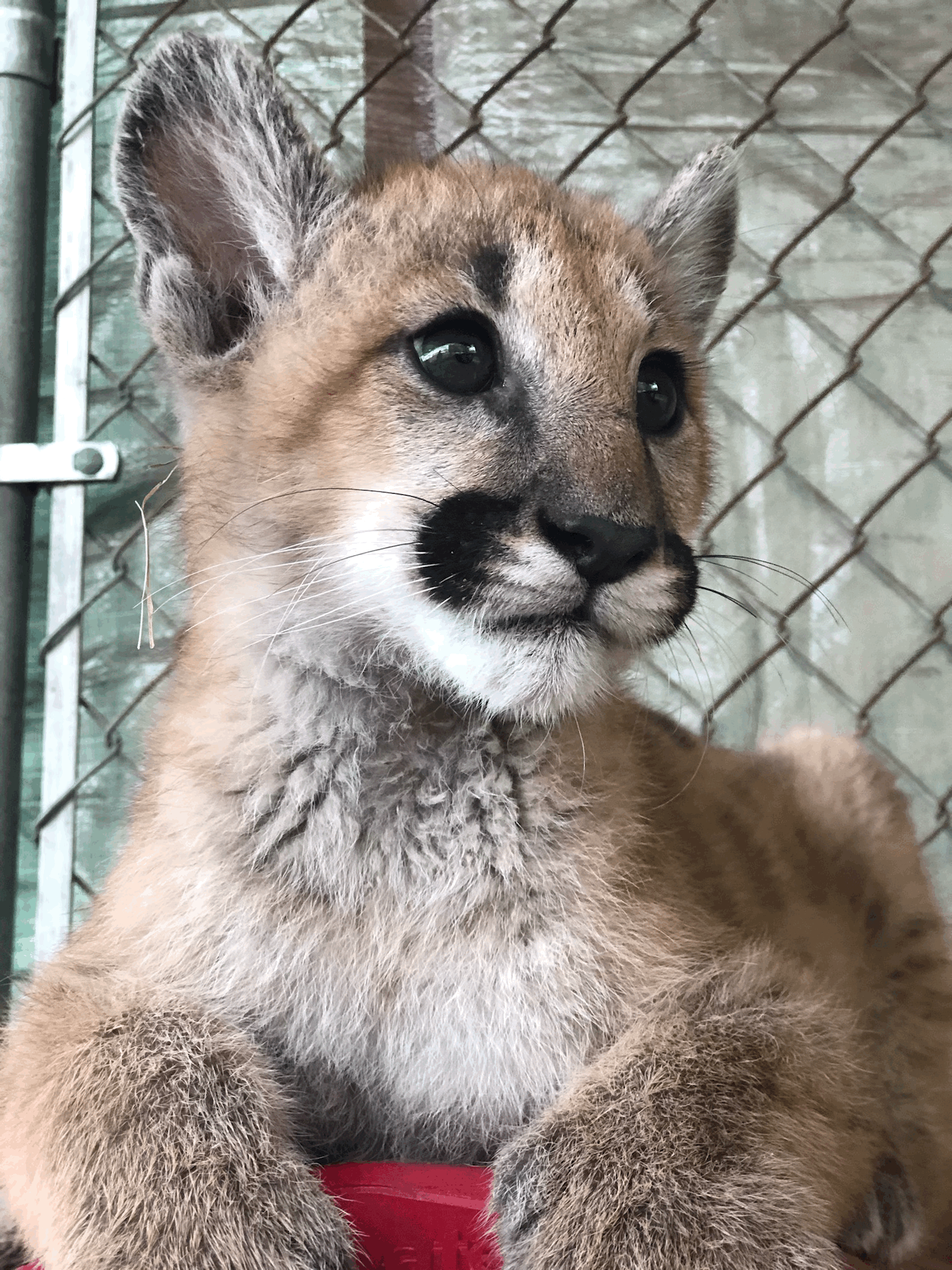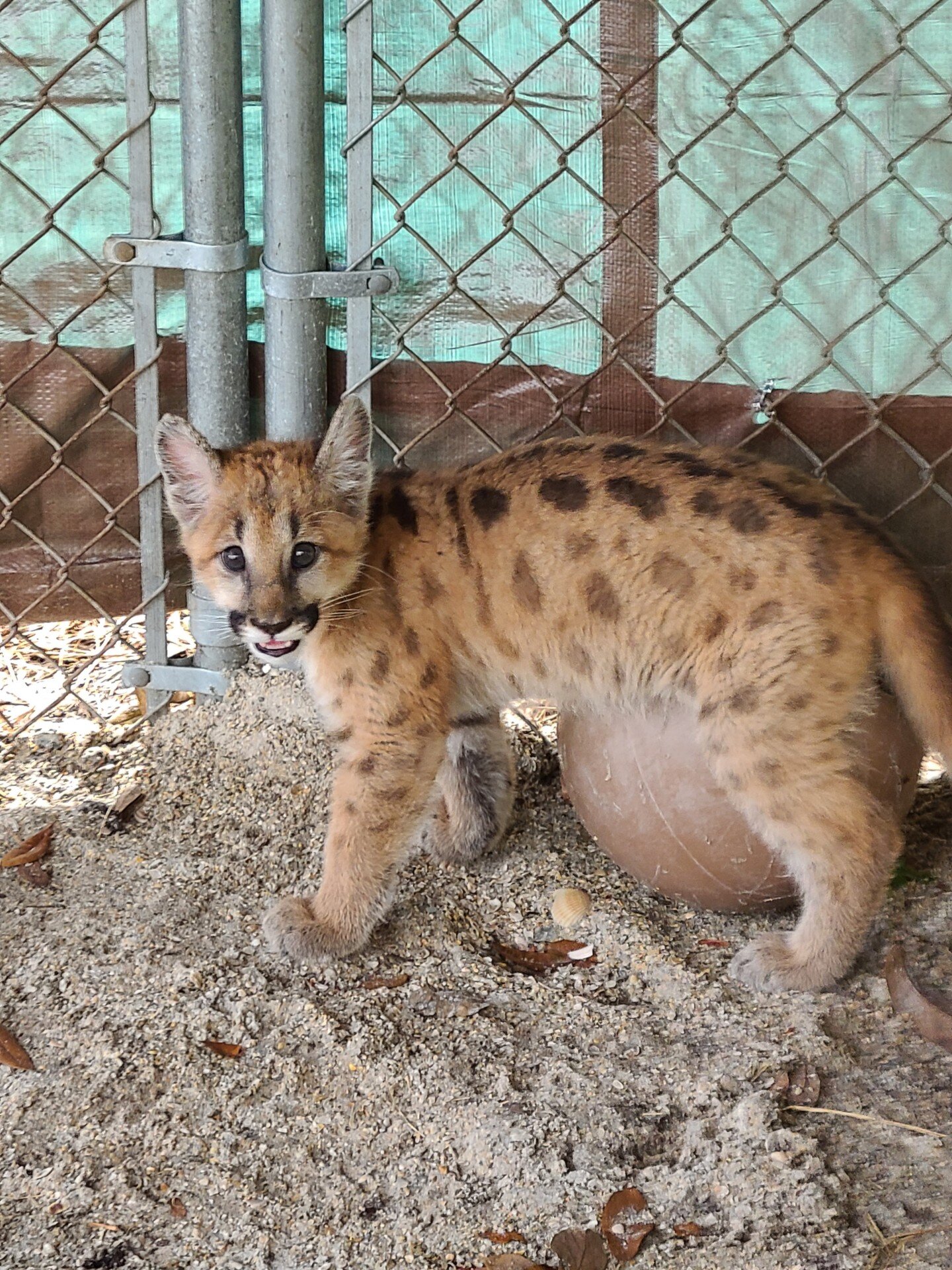St. Augustine Wild Reserve

Mission
Soul of the Wolf Wildlife Sanctuary (dba St. Augustine Wild Reserve, EIN 77-0411842) was founded to provide a home for unwanted and abused exotic animals. The center will provide top-quality care for all animals throughout their lives at the sanctuary. In all cases, animals will remain at the St. Augustine Wild Reserve for the remainder of their lives. We do NOT breed big cats at this facility. In our 40 years rescuing and caring for exotic animals, we have never bred big cats for sale or otherwise. We do not breed wolves, bears, hyenas, or any other mammal.
Soul of the Wolf's educational objective is to create in the general public a respect for all wild animals in the hope that an informed and enlightened public will allow the peaceful coexistence of man and nature.
The St. Augustine Wild Reserve's educational tours are unique in that they allow a close up view with the facility's exotic animals, although there is no hands-on interaction allowed. The center's philosophy is that a close and personal interaction with wild animals will create a much deeper respect for and understanding of nature and wildlife than any book or television program ever could. After looking face to face into the eyes of a Bengal tiger, guests leave the sanctuary with a desire to protect these animals and preserve their natural habitats. The St. Augustine Wild Reserve firmly believes that if people can interact closely with animals, they will in turn love, respect and protect them. Many lives have been changed through the center's discovery programs. The majesty of a playful tiger instills awe in park visitors, often inspiring them to actively join campaigns to stop poaching and protect wild habitats. Of course, we dissuade individuals from obtaining an exotic animal as a “pet.”
About Our Owner/Founder:
Soul of the Wolf Wildlife Sanctuary and Educational Foundation, Inc., d/b/a St. Augustine Wild Reserve, is a non-profit corporation founded in June 1995, focusing on the world's rapidly diminishing wildlife. Created as a rescue center for unwanted and abused exotic animals, this need has become evident due to the number of individuals who obtain an exotic animal or pet, only to realize that the animal's wild nature doesn't fit into their lifestyle or environment as they expected. This is where the St. Augustine Wild Reserve comes into play.
As Founder, Deborah Warrick-Rossi has over 40 years experience and has earned her AA degree, a certificate in animal husbandry from the Los Angeles Zoo, B.S. degree in Biology from UNF, and an M.S. degree in Veterinary Forensic Science from UF. Her unique skill set allows her to understand their behavioral characteristics, care and handling of various exotic animals. It is her vision, knowledge, working experience and love of exotic animals that will transform the St. Augustine Wild Reserve into a self-sustaining reality that will provide the public educational exposure and related benefits while providing a comfortable home for unwanted and abused animals.
As an example, two wolves were rescued when their owner (James Brolin’s mother, Jane) was involved in a fatal auto accident. Some animals were confiscated by Fish and Wildlife from individuals who held these animals without proper state permits. Currently, the compound cares for approximately 90 animals to include wolves, African lions, tigers, hyenas, a bear, coyotes, a coati mundi, an African crested porcupine, lynxes, leopards, jaguars, and a host of birds.
Meet Some of Our Amazing Volunteers with owner, Deborah
Ready to help?
Volunteer
—
Donate

Meet Topaz, our new baby cougar, born in Montana November, 2020!
MAKE YOUR FINAL WISHES COME TRUE (WILLS)
You have worked hard to accumulate assets throughout your life. If you do not have a valid Will or trust at your death, however, the state in which you reside will distribute those assets according to state law. When you create a Will, you have the ability to determine how your assets are distributed to the charitable organization of your choice. Including a bequest in your Will to The St. Augustine Wild Reserve may be the best way to make a meaninful gift and save specific assets, such as property, securities or real estate, in case you or your family members need them in the future.
Charitable bequests offer some of the following advantages:
Easy. Making a bequest is as simple as inserting a few sentences into your Will, such as, “I give $10,000 to the St. Augustine Wild Reserve.”
Revocable. Wills are not written in stone and can be changed at any time. Because circumstances evolve over time, your Will should do the same. With a bequest, you are not making a gift until your death. Until then, you are free to alter your plans.
Tax-wise. Aside from the pure joy achieved by leaving meaningful gifts to others, making a bequest to The St. Augustine Wild Reserve has valuable tax benefits. Your estate is entitled to an unlimited estate tax charitable deduction for bequests to qualified charitable organizations.
Making a Bequest in your Will
The reasons that donors make charitable bequests are generally as varied as the donors themselves, and they cover a wide range of personal and philanthropic goals. Perhaps the one common denominator is a sincere desire to give back to The St. Augustine Wild Reserve, with some of the other most notable reasons being:
Belief in The St. Augustine Wild Reserve. “The values you espouse are values I want to see perpetuated in our society,” a donor said in a letter to a charitable organization. “I like your objectives and I applaud the fact that you do not waste money in achieving them. I want to continue to support your mission.”
Ability to make changes. “I like the income tax break I get on my annual gifts to you and have always wanted to do more, but I like my cushion,” another donor said. “You never know what might happen. I might need that money someday. This way, if I need it, I can use it. I can change my mind about my Will at any time. If everything goes as planned, however, that money will go to support your work.”
Creating a personal legacy. “By making a charitable bequest to The St. Augustine Wild Reserve, I know that I am doing something for those who come after me, and it is a good feeling,” a donor said. “Thank you for showing me how to support a cause that I value, and for letting me do it my way.”







